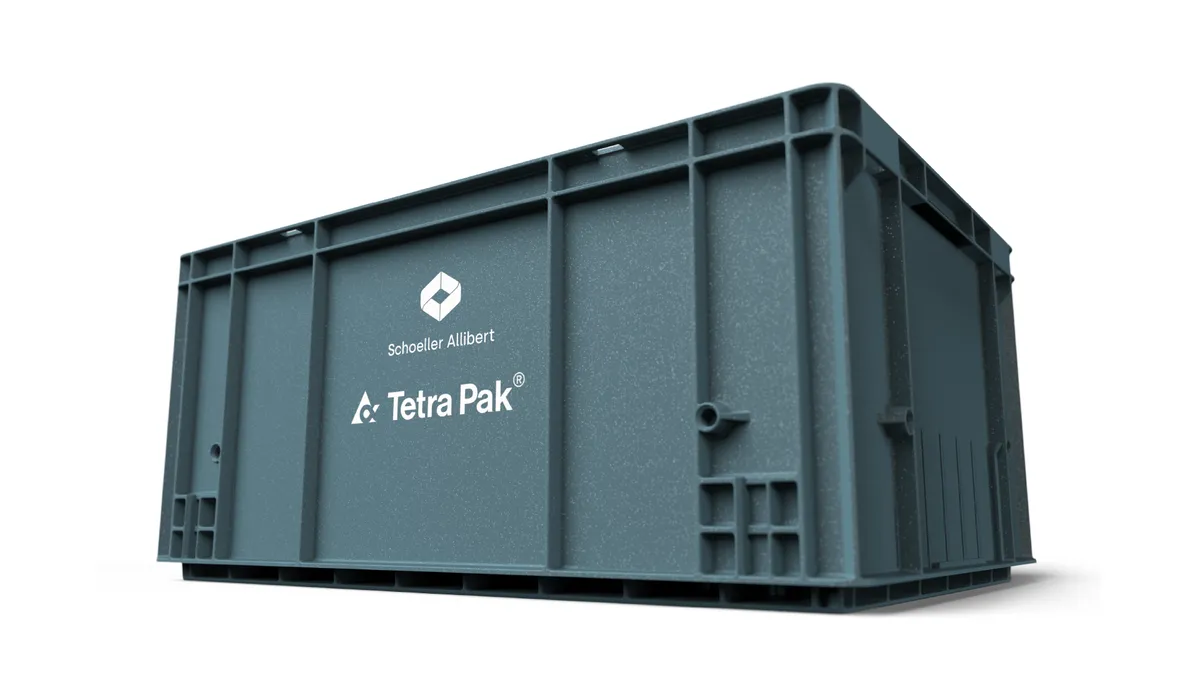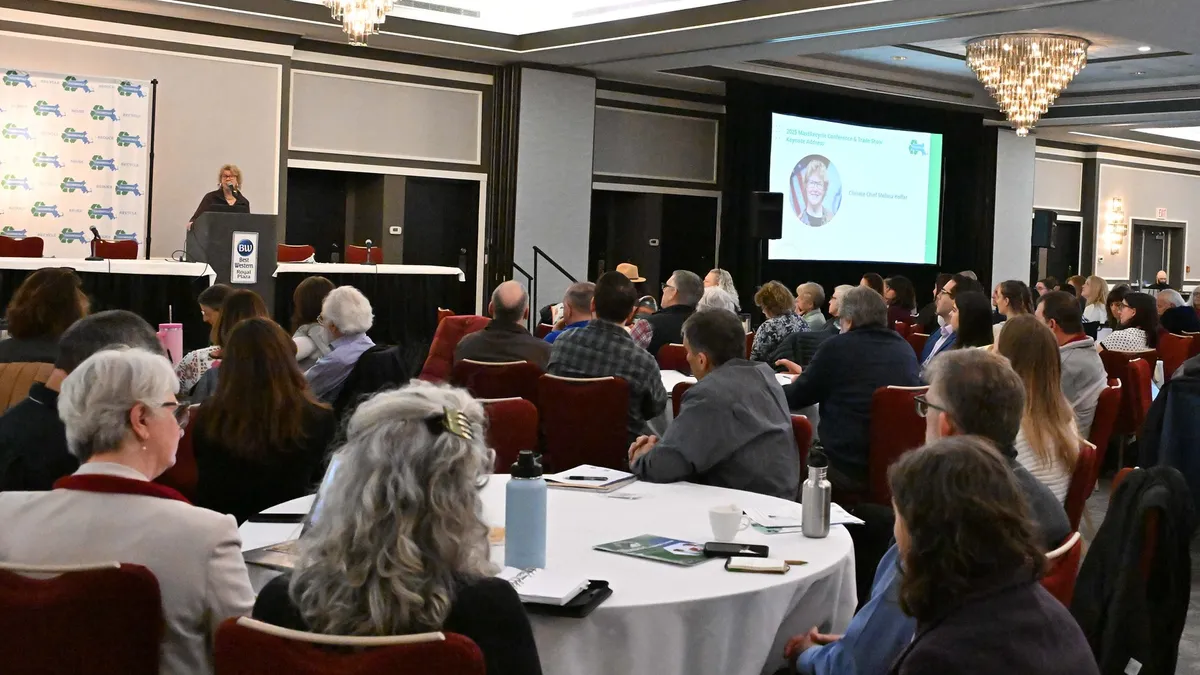Several extended producer responsibility bills in California are still in play after passing a key legislative deadline last week.
The crossover deadline is a significant date by which bills must pass out of their chamber of origin to proceed through the rest of the legislative session. California’s session ends August 31. A range of active EPR bills aim to update the state’s existing EPR for packaging law and adopt new EPR policies for items like textiles, household hazardous waste and marine flares.
| Bill Number | Highlights | Bill Status |
| SB 1231 | Packaging EPR updates | Passed Senate |
| SB 707 | EPR for textiles | Passed Senate in 2023 |
| SB 1143 | EPR for household hazardous waste | Passed Senate |
| SB 1066 | EPR for marine flares | Passed Senate |
Updating SB 54 with a new packaging eligibility process
SB 1231 would create a new process for producers to petition CalRecycle to approve certain packaging as meeting state recyclability standards. The bill would apply to certain producers covered under SB 54, California’s major EPR for packaging law established in 2022.
Sen. Ben Allen SB 54’s sponsor, also sponsors SB 1231. If passed, SB 1231 would update the existing process CalRecycle uses to determine whether a product is “recyclable.” That process was established in 2021 with the passage of SB 343, known as the “truth in labeling” bill. The law prohibits the use of the “chasing arrows” symbol or any other recyclability claim on packaging unless it meets state thresholds for collection and processing for recycling.
A product is considered “recyclable” under SB 343 only if only if it is collected for recycling in programs that serve 60% of Californians, and data from a material characterization study helps make those determinations. CalRecycle has released the SB 343 preliminary findings report.
SB 343 was meant to align with SB 54 by allowing an “on-ramp” for certain materials covered under the EPR program to be labeled as recyclable, even if it didn’t initially meet recyclability standards, if producers could demonstrate they have improved the material’s recycling rate.
Bill sponsors say SB 1231 is needed to fix a language issue in SB 54 that “inadvertently precludes CalRecycle from identifying which material could qualify for this on-ramp” until after a key deadline for removing recyclability claims from packaging has passed, according to a Senate floor analysis. SB 1231 aims to fix the time gap by allowing producers to petition CalRecycle for the continued use of recycling claims.
Supporters say the clean-up bill puts the onus on producers to make the case that their materials are “trending towards recyclability” instead of putting the responsibility on CalRecycle to make the decision based on updates to the material characterization study, which are due in 2027.
The National Stewardship Action Council, American Chemistry Council, The Recycling Partnership, Association of Plastic Recyclers, Consumer Brands Association and numerous major brands all support the legislation.
The bill has faced opposition from groups such as Beyond Plastics, the Last Beach Cleanup and the Plastic Pollution Coalition. The groups say SB 1231 would create “a huge new loophole” for the plastics industry to petition CalRecycle for an exception. The groups also oppose the way the bill would further delay implementation of SB 343 for six more months.
EPR for textiles
SB 707 would require producers of certain apparel and other textile products to establish a producer responsibility organization. The current version of the bill calls for CalRecycle to approve the PRO and adopt regulations to implement the program no earlier than Jan. 1, 2028. The PRO would need to submit a plan for collection, repair and recycling of such textiles by Jan. 1, 2030.
The bill was first introduced during the 2023 legislative session, where it passed the Senate. However, it was converted into a two-year bill to update language and accommodate more stakeholder input, including from retailers and the apparel industry. As of April, the bill now awaits further discussion in an Assembly committee.
California Product Stewardship Council, the main sponsor, says the bill could be the first of its kind if it passes. The bill last summer had enjoyed support from Republic Services, National Stewardship Action Council, Californians Against Waste, Resource Recovery Coalition of California and a coalition of environmental groups, but several apparel companies had opposed elements of the bill.
Household hazardous waste EPR
SB 1143, known as the Household Hazardous Waste Producer Responsibility Act, aims to provide a convenient and safe way to dispose of common items like cleaning products, pesticides, pool chemicals, fire extinguishers and some electronics and paint not already covered by other California programs.
The Department of Toxic Substances Control would need to adopt program implementation regulations by July 1, 2027, and the PRO would need to submit an EPR plan no later than a year after DTSC regulations go into effect.
Supporters such as the National Stewardship Action Council, a main author of the bill, say illegally or improperly disposed HHW can pollute the environment and expose waste workers to dangerous chemicals, which also increases health and insurance costs for recycling and landfill operators. Sen. Allen, who sponsored SB 54, also sponsors SB 1143. Other supporters include Republic Services’ Western Region, GreenWaste, RRCC and the Product Stewardship Institute.
Those that oppose the bill, including the American Chemistry Council and industry groups like the Household & Commercial Products Association, say an HHW EPR program is “premature” and the program could take away bandwidth from state implementation of other EPR programs, especially SB 54, according to a Senate bill analysis. Vermont is the only U.S. state with such a law so far.
EPR for marine flares
SB 1066 calls for requiring marine flare producers to establish an EPR program for “expired and unwanted” flares. Manufacturers would need to create a producer responsibility organization that would handle collection, transportation and management. The Department of Toxic Substances Control would need to approve the PRO by Jan. 1, 2027, and producers would need to register with the PRO no later than 90 days after DTSC approval.
The PRO would need to offer free and convenient statewide collection, including permanent collection sites. The PRO also would be responsible for creating an education and outreach program and installing informational signs at marinas and places where flares are sold.
DTSC classifies the flares as hazardous waste. Marine flares expire 42 months after manufacture, and state bill sponsor Sen. Catherine Blakespear says there are currently no permitted facilities in California that can treat or dispose of the flares. The bill is co-sponsored by the National Stewardship Action Council and Zero Waste Sonoma.
Other supporters say the EPR program would help prevent expired flares from being disposed of in the ocean or stockpiled.
Several boating organizations and a flare manufacturer oppose the bill, saying the program is not likely to be successful due to regulatory hurdles.
Correction: A prior version of this story misstated the status of the SB 343 preliminary findings comment period. The comment period is now closed.





















